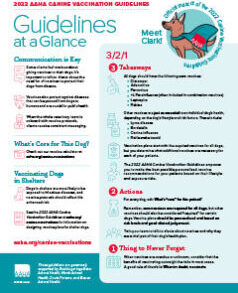
Tips for keeping your pet healthy and your landlord happy
Remember that as a pet-owning renter, it’s your responsibility to ensure that your pet is also a welcome addition to your apartment community. If you allow your pet to violate property rules, damage property or make others uncomfortable, not only could you find yourself searching for a new apartment, you could actually ruin prospects for other pet owners interested in moving in. Use these tips to ensure that your pet stays happy and healthy, and that your landlord is pleased to have you and your pet as residents. In addition to the species-specific tips below, check out our tips for all pet owners on affording spay/neuter.
Tips for cat owners:
Tips for dog owners:
What to do when your landlord says your pet must leave
As long as you follow your rental property’s rules and take care to ensure your pet doesn’t cause damage or become a nuisance to others, there should be no conflict between you and your landlord. But even the best pet owners sometimes encounter challenges that are beyond their control. If you have done all you can to be a great pet-owning renter but are still facing a threat of eviction from your landlord, it’s important to know that you do have legal protections available that can help keep your family intact.
Review your lease. Typically if a lease does not mention pets at all, then you are allowed to have pets. Some communities and public housing authorities have laws and rules banning certain types of animals or breeds of dogs. Be sure to check if any local laws or rules are in effect, as these outweigh your lease.
Contracts like leases cannot be changed without both sides agreeing, unless there is already language in the document that allows the change.
Your landlord cannot go into your apartment and remove a pet or show up and force you or your pet out. Landlords have to follow the law and go through a legal process to remove tenants or their pets. Generally the landlord cannot even enter the home without giving the tenant notice except in an emergency, unless the lease specifies otherwise.
Even if your lease does not allow pets, you may have a legal right to keep your pet. Your right to keep your pet may depend on local housing laws, the type of housing you live in, as well as the type of lease you have. This is why it is so important to find legal resources to assist you. Also, if your pet meets the legal qualifications of an assistance animal, you may have a legal right to keep your pet.
While not technically “tenants,” unit owners in co-ops and condominiums may also face pet-related housing issues. Co-op and condo boards have strict defined rules they must follow to make any changes in pet policies or to remove unit owners. If your building’s pet policies have suddenly become restrictive or if you’ve received notices to remove a pet, it’s important to seek legal assistance to determine your rights.
If you are being faced with eviction or loss of your pet, seek help before you do anything drastic. There may be legal resources in your community (see next section) to help you find answers to questions about your lease or about notices you have received from your landlord. These include nonprofit agencies whose services may be low cost or even free. You may be able to keep your housing and your pet, so do not panic.
Tips for navigating common scenarios that cause landlords to consider evicting you and your pet:
- Your landlord says there are complaints that your pet is being a nuisance.
- Your landlord says that the lease says no pets and your pet has to be removed.
- Have an attorney or a tenant’s rights agency review the lease if this isn’t clear. (see “Finding Legal Resources in Your Community,” below). If you or anyone in your household suffers from a physical and/or emotional disability you may have a right to keep your pet as an assistance animal.
- Your landlord says that your pet must leave if you don’t start paying a fee each month. Or, a new landlord takes over the property, and says they will no longer allow pets.
- Typically a landlord cannot suddenly change the terms of a lease and charge additional fees. Check with your local legal resources to get more information about tenant rights (See “Finding Legal Resources in Your Community,” below).
Finding legal resources in your community
Many states and cities have organizations that provide information and, in some cases, free legal assistance to people with a housing concern. The easiest way to identify these organizations is to use the Internet to search the following terms:
- [Your state or city] Legal Services
- [Your state or city] Legal Aid
- Free legal services in [your state or city]
This post was originally published on this site be sure to check out more of their content.








































